
Entertainment
-
 DiscoverEU marks 40 years of Schengen with 40,000 free travel passes for young Europeans
The European Commission is celebrating the 40th anniversary of the Schengen Area by offering 40,000 young Europeans the chance to explore the continent through DiscoverEU, part of the31 October 2025Read More...
DiscoverEU marks 40 years of Schengen with 40,000 free travel passes for young Europeans
The European Commission is celebrating the 40th anniversary of the Schengen Area by offering 40,000 young Europeans the chance to explore the continent through DiscoverEU, part of the31 October 2025Read More... -
 Brussels universities to award honorary doctorates to Stromae, Lize Spit, and Amélie Nothomb
The Vrije Universiteit Brussel (VUB) announced on Monday that Stromae, Lize Spit, Amélie Nothomb, François Schuiten, and Ever Meulen will receive joint honorary doctorates from VUB and27 October 2025Read More...
Brussels universities to award honorary doctorates to Stromae, Lize Spit, and Amélie Nothomb
The Vrije Universiteit Brussel (VUB) announced on Monday that Stromae, Lize Spit, Amélie Nothomb, François Schuiten, and Ever Meulen will receive joint honorary doctorates from VUB and27 October 2025Read More... -
 Stolen Renaissance masterpiece returns to Italy after 52 years
After more than half a century, a stolen Renaissance painting has finally returned home to Italy. *Madonna with Child*, a tempera-on-wood masterpiece by Venetian painter Antonio Solario,31 July 2025Read More...
Stolen Renaissance masterpiece returns to Italy after 52 years
After more than half a century, a stolen Renaissance painting has finally returned home to Italy. *Madonna with Child*, a tempera-on-wood masterpiece by Venetian painter Antonio Solario,31 July 2025Read More... -
 Belgian seaside resorts: highlights of royal De Panne
While Ostend is often dubbed the queen of Belgium’s seaside resorts, the country’s coastline offers many other gems worth discovering. In this series, Belga English explores four distinctive20 July 2025Read More...
Belgian seaside resorts: highlights of royal De Panne
While Ostend is often dubbed the queen of Belgium’s seaside resorts, the country’s coastline offers many other gems worth discovering. In this series, Belga English explores four distinctive20 July 2025Read More... -
 Louis Vuitton named suspect in Dutch money laundering probe
Luxury fashion house Louis Vuitton has been named a suspect in a Dutch money laundering investigation, according to the Dutch Public Prosecution Service (OM). The OM alleges that18 July 2025Read More...
Louis Vuitton named suspect in Dutch money laundering probe
Luxury fashion house Louis Vuitton has been named a suspect in a Dutch money laundering investigation, according to the Dutch Public Prosecution Service (OM). The OM alleges that18 July 2025Read More... -
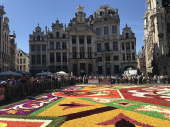 Brussels tops global rankings for international meetings as tourism soars to new heights
Brussels has once again secured its position as the world’s top city for international meetings, according to the latest annual report from the Union of International Associations (UIA).26 June 2025Read More...
Brussels tops global rankings for international meetings as tourism soars to new heights
Brussels has once again secured its position as the world’s top city for international meetings, according to the latest annual report from the Union of International Associations (UIA).26 June 2025Read More... -
 Coffee prices keep climbing in Czech establishments
The cost of a cup of coffee in Czech restaurants and cafés has increased by 4% over the past year, now averaging CZK 57.80, according to data from the Dotykačka point-of-sale system.15 June 2025Read More...
Coffee prices keep climbing in Czech establishments
The cost of a cup of coffee in Czech restaurants and cafés has increased by 4% over the past year, now averaging CZK 57.80, according to data from the Dotykačka point-of-sale system.15 June 2025Read More...
Politics
-
 MEPs push for a “military Schengen” to counter potential Russian threat
The European Parliament has thrown its support behind plans to create a “military Schengen” – a system that would allow troops and military equipment to move freely across EU borders.Read More...
MEPs push for a “military Schengen” to counter potential Russian threat
The European Parliament has thrown its support behind plans to create a “military Schengen” – a system that would allow troops and military equipment to move freely across EU borders.Read More... -
 France’s former President Sarkozy to begin appeal trial over Libyan Funding allegations
Former French President Nicolas Sarkozy is set to appear in a Paris court on March 16 for the start of his appeal trial over allegations of illegal campaignRead More...
France’s former President Sarkozy to begin appeal trial over Libyan Funding allegations
Former French President Nicolas Sarkozy is set to appear in a Paris court on March 16 for the start of his appeal trial over allegations of illegal campaignRead More... -
 French parliament poised to halt Macron’s pension reform amid budget Turmoil
French lawmakers are expected to vote Wednesday to suspend President Emmanuel Macron’s controversial pension reform, as the government battles to push next year’s budget through aRead More...
French parliament poised to halt Macron’s pension reform amid budget Turmoil
French lawmakers are expected to vote Wednesday to suspend President Emmanuel Macron’s controversial pension reform, as the government battles to push next year’s budget through aRead More... -
 Ex-minister Ziobro rejects corruption allegations, labels case political
Former Polish justice minister Zbigniew Ziobro vowed on Saturday to pursue “legal and political” action after parliament voted to lift his immunity, clearing the way for prosecutors to bringRead More...
Ex-minister Ziobro rejects corruption allegations, labels case political
Former Polish justice minister Zbigniew Ziobro vowed on Saturday to pursue “legal and political” action after parliament voted to lift his immunity, clearing the way for prosecutors to bringRead More... -
 Pro-Russian hackers briefly disrupt Belgian Telecom websites in DDoS attack
A wave of DDoS attacks briefly disrupted the websites of Belgian telecom operators Proximus and Scarlet on Wednesday morning, with the pro-Russian hacker group NoName057 claimingRead More...
Pro-Russian hackers briefly disrupt Belgian Telecom websites in DDoS attack
A wave of DDoS attacks briefly disrupted the websites of Belgian telecom operators Proximus and Scarlet on Wednesday morning, with the pro-Russian hacker group NoName057 claimingRead More...
News
-
 EU must build over 2 million homes annually by 2035 to avert housing crisis, new data shows
The European Union will need to build more than two million new homes every year until 2035 to keep up with soaring demand, according to new projections released by the EuropeanRead More...
EU must build over 2 million homes annually by 2035 to avert housing crisis, new data shows
The European Union will need to build more than two million new homes every year until 2035 to keep up with soaring demand, according to new projections released by the EuropeanRead More... -
 Police raid homes and offices of French Culture Minister Rachida Dati in corruption probe
French police searched Culture Minister Rachida Dati’s home and offices on Thursday as part of a widening corruption investigation linked to her tenure as a European Parliament lawmaker,Read More...
Police raid homes and offices of French Culture Minister Rachida Dati in corruption probe
French police searched Culture Minister Rachida Dati’s home and offices on Thursday as part of a widening corruption investigation linked to her tenure as a European Parliament lawmaker,Read More... -
 White Christmas unlikely in Switzerland, MeteoSwiss says
The chances of a white Christmas in Switzerland are slim, with snowfall in the lowlands virtually ruled out, according to the Federal Office of Meteorology and Climatology (MeteoSwiss).Read More...
White Christmas unlikely in Switzerland, MeteoSwiss says
The chances of a white Christmas in Switzerland are slim, with snowfall in the lowlands virtually ruled out, according to the Federal Office of Meteorology and Climatology (MeteoSwiss).Read More... -
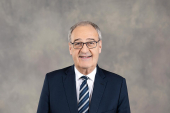 Guy Parmelin elected Swiss President for 2026 with record-breaking vote
Economics Minister Guy Parmelin will serve as President of the Swiss Confederation in 2026, securing the office with a result that sets a new benchmark for the current millennium.Read More...
Guy Parmelin elected Swiss President for 2026 with record-breaking vote
Economics Minister Guy Parmelin will serve as President of the Swiss Confederation in 2026, securing the office with a result that sets a new benchmark for the current millennium.Read More... -
 Nigeria seeks French support to tackle insecurity, Macron says
Nigerian President Bola Tinubu has requested increased support from France to combat escalating insecurity in the country’s north, French President Emmanuel Macron said on Sunday,Read More...
Nigeria seeks French support to tackle insecurity, Macron says
Nigerian President Bola Tinubu has requested increased support from France to combat escalating insecurity in the country’s north, French President Emmanuel Macron said on Sunday,Read More... -
 Swiss army has “gone back to sleep,” says departing chief
Switzerland briefly awakened to the urgency of national defence following Russia’s 2022 invasion of Ukraine — but has since drifted back into complacency, outgoingRead More...
Swiss army has “gone back to sleep,” says departing chief
Switzerland briefly awakened to the urgency of national defence following Russia’s 2022 invasion of Ukraine — but has since drifted back into complacency, outgoingRead More... -
 Poland and Germany to seal new defence pact in 2026, leaders announce
Polish Prime Minister Donald Tusk and German Chancellor Friedrich Merz said on Monday that their governments plan to sign a new bilateral defence agreement nextRead More...
Poland and Germany to seal new defence pact in 2026, leaders announce
Polish Prime Minister Donald Tusk and German Chancellor Friedrich Merz said on Monday that their governments plan to sign a new bilateral defence agreement nextRead More... -
 Monegasque Language Committee resumes its work
Following the publication of Sovereign Ordinance No. 11,219 on 7 May 2025, which appointed the members of the Monegasque Language Committee, the group has officially reconvened atRead More...
Monegasque Language Committee resumes its work
Following the publication of Sovereign Ordinance No. 11,219 on 7 May 2025, which appointed the members of the Monegasque Language Committee, the group has officially reconvened atRead More...

Most Read
- Teen held after US woman killed in London stabbings
- Football: Farhad Moshiri adamant Everton deal above board
- Greece hails new post-bailout chapter but concerns remain
- The Kokorev case caused wide discussion in Brussels
- EU accession talks stir debate in Moldova: insights from Gagauzia's leader, Yevgenia Gutsul
Economics

Israel's defence minister on Sunday dismissed claims the country's spy agency was behind the assassination of a Palestinian scientist in Malaysia, suggesting instead that his killing was a
General Electric reported a $1.2 billion loss in the first quarter Friday following a large legal charge, but shares surged after operating profits topped analyst expectations.

A peace treaty to formally end the Korean War "must be pursued", South Korean President Moon Jae-in said Thursday, ahead of a summit with Kim Jong Un, leader of the nuclear-armed

French President Emmanuel Macron's vision for a stronger European Union may be in tatters as a growing rift emerges with Germany on everything from defence to his plans for deeper

In the wake of the alleged poisoning former Russian spy Sergei Skripal and his daughter Yulia in Salisbury, American policymakers are taking their cues from their British counterparts when

An elite global surfing championship in west Australia was cancelled Wednesday after two shark attacks near the event, organisers said.
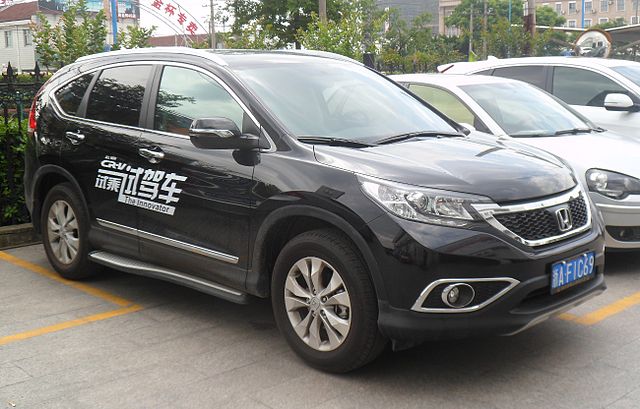
China announced Tuesday a timeline to open up its manufacturing sector including scrapping ownership limits for foreign automakers, shipbuilders and aircraft firms -- addressing a
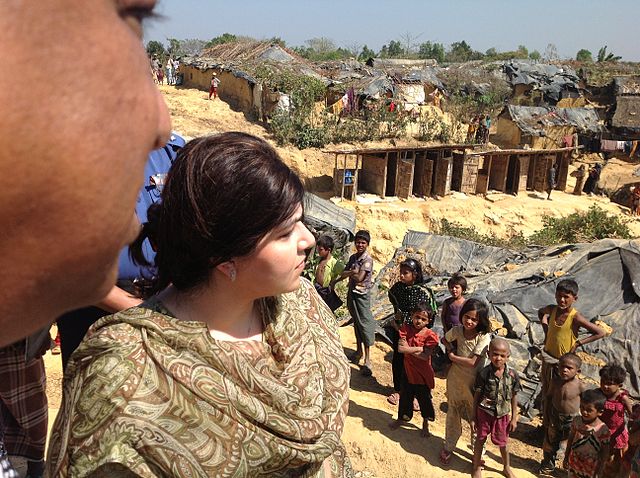
Myanmar's government said it has repatriated the first family of Rohingya refugees, among the 700,000 who fled a brutal crackdown, but the move was slammed by rights groups as a
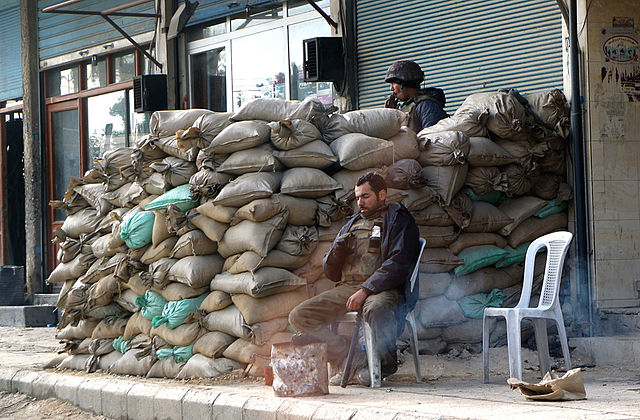
Calls grew on Monday for an international response to an alleged chemical weapons attack on a rebel-held Syrian town, with the United States warning that it was not excluding military

Twitter said Thursday it has suspended over one million accounts for "promotion of terrorism" since 2015, claiming its efforts have begun to make the platform "an undesirable place" to call



















